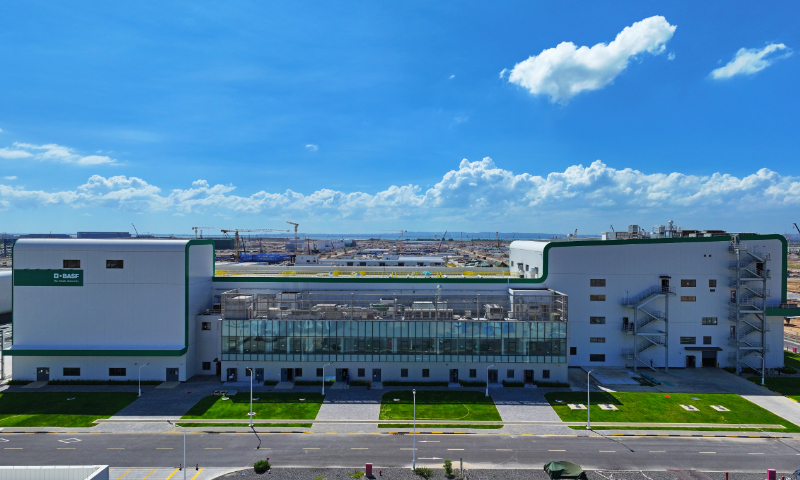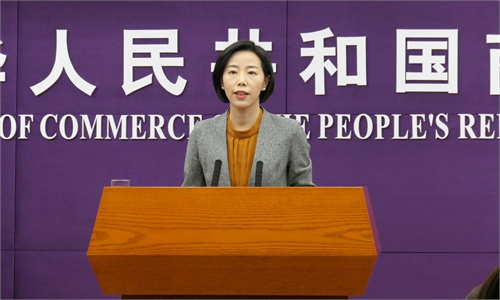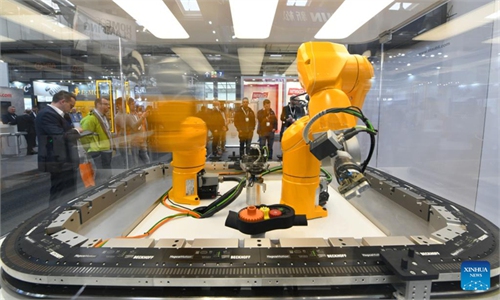
BASF celebrates the inauguration of its Thermoplastic Polyurethane (TPU) plant at the Zhanjiang Verbund site in South China’s Guangdong Province on January 18, 2024. Photo: Courtesy of BASF
German multinational chemical company BASF on Thursday celebrated the inauguration of its Thermoplastic Polyurethane (TPU) plant at its Zhanjiang Verbund site in South China's Guangdong Province, marking a milestone in the site's initial construction phase, according to a statement sent to the Global Times from BASF on Thursday.
The new plant is the largest single TPU production line for BASF globally. It will help to meet market demand in industrial, eMobility and new energy segments, the company said.
The plant will also enable BASF to meet the growing market demand for TPU in Asia Pacific, as well as bringing it closer to key customer industries in China and Asia Pacific, said Martin Jung, BASF president of performance materials.
BASF's Zhanjiang Verbund site is the first large petrochemical project solely owned by a foreign investor in China. The project shows that opening-up measures are being implemented and China-Germany manufacturing cooperation is reaching a new level.
Such a project is also proof of China's stepped-up support for foreign investment through a series of policies aimed at attracting foreign investment into the manufacturing and research sectors, analysts said.
"As the largest chemical market in the world, China plays a vital and strategic role for BASF. This milestone in the Zhanjiang Verbund site project highlights BASF's robust development in China and our dedication to being close to our local customers," said Jeffrey Lou, president and chairman of BASF Greater China.
With the increased local production capabilities and strong commitments in sustainability, BASF can provide more innovative solutions with a lower carbon footprint to customers in China, Lou said.
BASF plans to power the entire Zhanjiang Verbund site with 100 percent renewable energy by 2025.
In July 2023, BASF and Mingyang Smart Energy, a Chinese wind turbine manufacturer, formed a joint venture for an offshore wind farm in Guangdong, which was the first Chinese-German offshore wind farm project, BASF told the Global Times in a previous note.
The wind farm is expected to be fully operational in 2025, and the majority of the power generated will be used to supply renewable electricity to the Zhanjiang Verbund site.
Upon completion, the Zhanjiang Verbund site will be BASF's largest investment to date, at around 10 billion euros ($10.9 billion). It will be operated under the sole responsibility of BASF and will be the company's third-largest Verbund site worldwide, following Ludwigshafen in Germany and Antwerp in Belgium, the company said.
Along with the Zhanjiang Verbund site's first plant - which was inaugurated in 2022 and produces engineering plastics compounds - as well as innovation competencies in BASF's creation centers and an extensive Research & Development (R&D) network in Asia Pacific, BASF is well-positioned to meet the growing demand of its customers across the region for innovative material solutions, the company said.
"BASF's strategy is to produce where our customers are. Thanks to the strong support from the Chinese government, our employees, and partners, the Zhanjiang Verbund site project has been progressing steadily as planned and has now concluded the construction of its initial phase," said Haryono Lim, president of mega projects Asia of BASF.
Lim said that the Zhanjiang site is now focusing on building its core of the Verbund including a steam cracker and several downstream plants to produce petrochemicals and intermediates, among others. BASF is dedicated to building the Zhanjiang Verbund site as a role model of sustainable and smart production, it said.
The decision of European companies to invest and set up factories in China is based on rational analysis and positive business expectations, Li Yong, a senior research fellow at the China Association of International Trade, told the Global Times on Thursday.
"China can offer opportunities and growth prospects that cannot be found elsewhere. China is one of the most important markets in the world, and it is impossible for any multinational company to bypass this market if it wants to have a global presence," Li said.
Global Times



